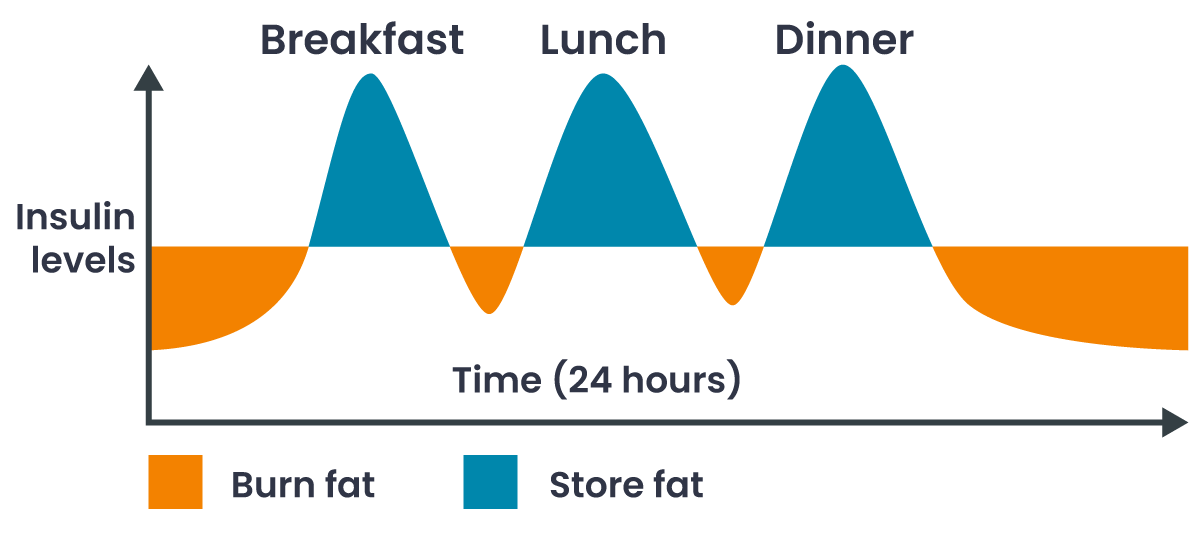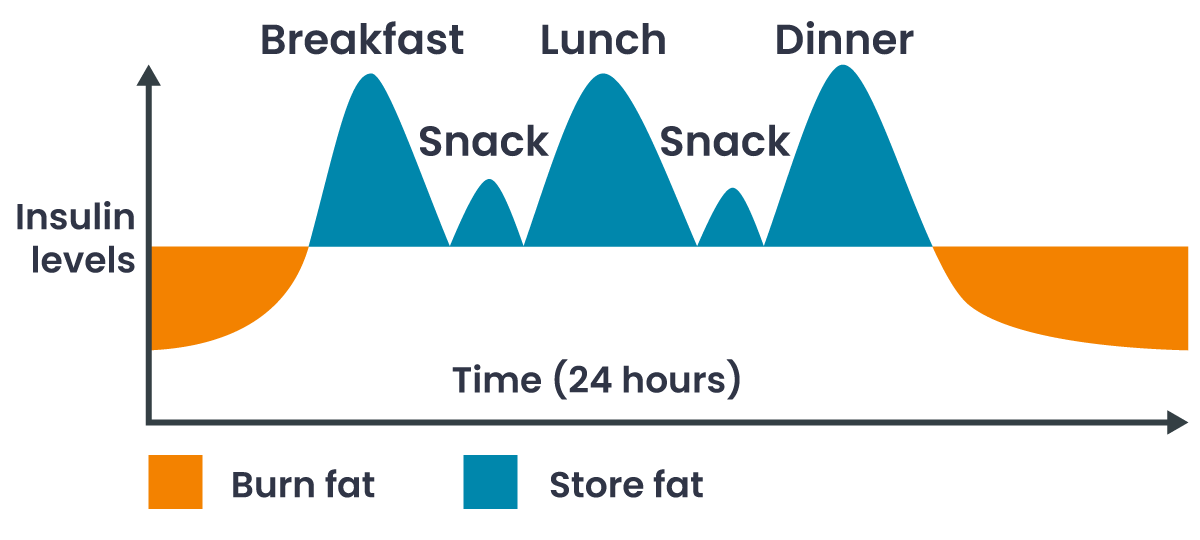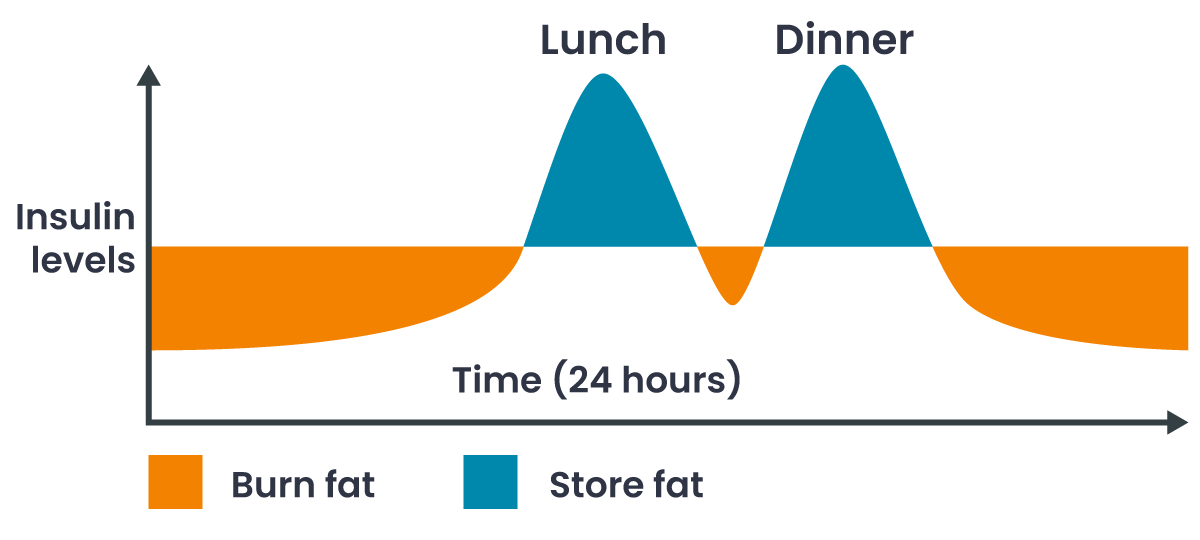Time restricted eating
Most of us have a time window in the day that we eat. For example if you have:
- breakfast at 08:00am
- Lunch at 13:00pm
- evening meal at 20:00pm
Then your eating time in 24 hours is 08:00am – 20:00pm = 12 hours. That leaves 12 hours of the day when you are not eating (or 12:12).
It can help you lose weight if you reduce the time window in which you eat food. Make sure you eat your evening meal as early you reasonably can.
Generally, when you wake up in the morning, you are in the “fasting” or fat burning state. The word breakfast literally means that you are “breaking your fast” i.e. switching from fat burning to fat storing.
Three meals a day

Snacking
If you snack between meals, then the amount of time that you spend storing fat is considerably increased with fat burning time decreased.

In 1917, an article in the “Good Health” magazine proclaimed that “Breakfast is the Most Important Meal of the Day”. The magazine was edited by John Harvey Kellogg, inventor of the flaked cereal. This statement would appear to represent a conflict of interest! 102 years later, the NHS still promotes this point of view, despite the fact that there is no good evidence to support it. We keep being told that is is essential that we have three meals a day. We disagree.
Skipping breakfast
If we skip breakfast, then our fasting (fat burning) state would continue until lunch time. So our eating window would be between 13:00pm to 20:00pm ( 7 hours or 7:17).

Taking things to the next level, some people reduce their eating window further, by skipping breakfast and lunch on the same day (one meal a day or “OMAD”) maybe twice a week. This takes some practice and is not easy to start with. There can be side effects, such as diarrhoea and dizziness if you do not drink enough water. This can be a very effective weight loss strategy but please do not try this without speaking to us first, if you are under 18 years old, have a mental or other physical condition – in particular if you are taking diabetic or blood pressure medication.
Further reading
For more information about intermittent fasting, you could read Dr Jason Fung’s Book “The Complete Guide to Fasting”. He has also produced a number of videos on the subject that you can find easily on YouTube. Either way, read up about it first, or seek advice from the Freshwell team.
